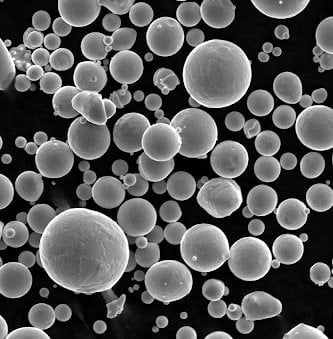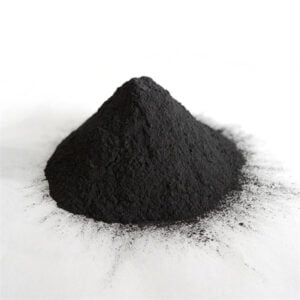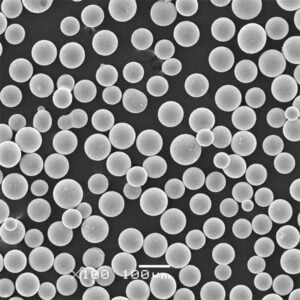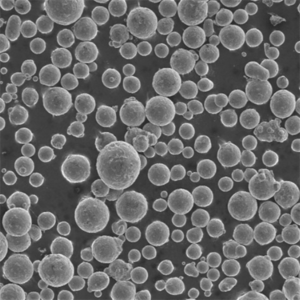Cobalt Chrome F75 Powder
Cobalt chrome F75 powder refers specifically to a cobalt-chromium alloy powder meeting ASTM F75 standards for composition and particle size distribution. It is a versatile cobalt-based alloy powder used in various metal 3D printing processes to create end-use orthopedic implants and dental restorations.
Some key details about cobalt chrome F75 powder include:
Composition
- Predominantly cobalt and chromium, along with molybdenum and smaller amounts of other alloying elements
Low MOQ
Provide low minimum order quantity to meet different needs.
OEM & ODM
Provide customized products and design services to meet unique customer needs.
Adequate Stock
Ensure fast order processing and provide reliable and efficient service.
Customer Satisfaction
Provide high quality products with customer satisfaction at the core.
share this product
Table of Contents
Cobalt chrome alloys, also known as cobalt-chromium alloys, are a specialized class of biocompatible materials widely used in orthopedic implants like hip and knee replacements. They offer an optimal balance of mechanical properties like high strength and durability along with biocompatibility and corrosion resistance when implanted in the human body.
Overview of Cobalt Chrome F75 Powder
Cobalt chrome F75 powder refers specifically to a cobalt-chromium alloy powder meeting ASTM F75 standards for composition and particle size distribution. It is a versatile cobalt-based alloy powder used in various metal 3D printing processes to create end-use orthopedic implants and dental restorations.
Some key details about cobalt chrome F75 powder include:
Composition
- Predominantly cobalt and chromium, along with molybdenum and smaller amounts of other alloying elements
- Meets chemical composition limits per ASTM F75 standard
- Powder particle size distribution typically 20-63 microns
Properties
- Biocompatible and corrosion-resistant for use in body
- High strength and hardness for load-bearing implants
- Ductile allowing some deformation under stress before fracture
- Durable with excellent wear resistance
- Dence, non-porous structures in final printed parts
Production Process
- Gas atomized powder production method preferred
- Results in smooth near-spherical powder particles beneficial for flow and printing
Applications
- 3D printing orthopedic implants like hip and knee joints
- 3D printing dental restorations like crowns, bridges, partial denture frameworks
Standards
- ASTM F75 – Standard Specification for Cobalt-28 Chromium-6 Molybdenum Alloy Castings and Casting Alloy for Surgical Implants
- ISO 5832-4 – Implants for surgery — Metallic materials — Part 4: Cobalt-chromium-molybdenum casting alloy
So in summary, cobalt chrome F75 is a versatile biocompatible alloy powder designed specifically to meet surgical implant material standards and optimized for additive manufacturing of end-use orthopedic and dental devices.
Composition of Cobalt Chrome F75 Powder
The F75 designation for cobalt chrome powders refers to the compositional requirements and limits for the alloy as per the ASTM F75 standard. The nominal composition is outlined below:
| Element | Composition Range |
|---|---|
| Cobalt (Co) | Balance |
| Chromium (Cr) | 27.0 – 30.0 wt% |
| Molybdenum (Mo) | 5.0 – 7.0 wt% |
| Nickel (Ni) | < 1.0 wt% |
| Iron (Fe) | < 0.75 wt% |
| Carbon (C) | < 0.16 wt% |
| Manganese (Mn) | < 1.0 wt% |
| Silicon (Si) | < 1.0 wt% |
| Nitrogen (N) | < 0.25 wt% |
| Oxygen (O) | < 0.4 wt% |
So it contains primarily cobalt and chromium, along with significant molybdenum content. Careful control of composition within these ranges imparts the desired properties to the alloy in its final state.
The high chromium content contributes to excellent corrosion and oxidation resistance. Cobalt serves as the primary matrix material providing strength and biocompatibility. Molybdenum significantly enhances wear resistance for load-bearing implant applications. The inclusion of certain amounts of other elements like manganese and nitrogen also serve to fine-tune the microstructure and performance.
Properties and Characteristics
Cobalt chrome F75 powder enables additive manufacturing of exceptionally strong, wear-resistant, and biocompatible components due to the inherent metallurgical properties of the alloy composition:
| Property | Typical Value |
|---|---|
| Mechanical | |
| Tensile Strength | 130,000 psi (896 MPa) |
| Yield Strength | 115,000 psi (793 MPa) |
| Elongation | 8 – 15% |
| Young’s Modulus | 30×106 psi (207 GPa) |
| Hardness | 38 – 48 HRC |
| Physical | |
| Density | 8.3 g/cm3 |
| Melting Range | 1260–1350°C (2300–2460°F) |
| Performance | |
| Biocompatibility | Non-cytotoxic; excellent history of use in body |
| Corrosion Resistance | Resistant to body fluids, chloride ion solutions |
| Wear Resistance | 4x increase vs stainless steel; minimizes abrasive implant wear debris |
The high hardness rating along with good ductility makes cobalt chrome extremely scratch and wear resistant which minimizes the generation of microscopic wear particles over years of use. The non-porous structures ensure metallic integrity free of defects while still allowing some elasticity under working loads. Combined with biocompatibility and high corrosion resistance, cobalt chrome F75 powder produces implants and devices suitable for permanent placement in the body.
Applications and Uses
The unique blend of mechanical, physical, and biocompatible properties tailored to meet the demanding environment of the body has established cobalt chrome F75 powder as the material of choice for metal additive manufacturing across orthopedics and dentistry:
Orthopedic Implants
- Hip replacements – Femoral stems, acetabular cups, liners
- Knee replacements – Femoral components, tibial trays
- Spinal fixation – Pedicle screws, rods
- Fracture plates, screws
- Patient-specific implants
Dental Restorations
- Crowns and bridges
- Implant abutments
- Removable partial denture frameworks
- Model casting
Cobalt chrome F75 enables direct fabrication of complex, custom-fit implants otherwise challenging or impossible to produce via conventional manufacturing methods. 3D printing eliminates the need for machining cobalt chrome, which is extremely difficult due to the hardness. It also enables tailored lattice structures to modulate flexibility and bone in-growth in orthopedic devices.
The high biocompatibility and corrosion resistance minimizes risk of allergic reaction long-term while the high strength and stiffness provide load-bearing capability almost matching natural bone. With 3D printing, cobalt chrome F75 empowers faster recovery and improved mobility for patients.
Specifications
Cobalt chrome orthopedic implants and dental devices must meet stringent regulatory requirements for safety and effectiveness. As such, cobalt chrome F75 powder and printed parts must conform to specifications spanning chemical composition, microstructure, mechanical properties, dimensional accuracy, porosity limits, surface finish, cleanliness, sterilization compatibility, and more.
Key standards include:
| Standard | Organization | Scope |
|---|---|---|
| ASTM F75 | ASTM International | Chemical composition; mechanical, physical, and corrosion performance requirements |
| ASTM F2924 | ASTM International | Standard specification for additive manufacturing cobalt chrome alloy |
| ISO 5832-4 | International Organization for Standardization | Implant grade cobalt chrome molybdenum alloy composition and property limits |
These standards establish strict upper and lower limits for trace metallic elements and impurities to minimize adverse biological response. They also mandate minimum property requirements like fracture toughness, tensile strength, hardness values, grain sizes, porosity levels, surface finish quality, corrosion rate criteria, and dimensional accuracy grades to ensure clinical safety and device effectiveness.
Both feedstock powders and final printed parts must satisfy certification testing to these specifications through stringent quality assurance protocols before regulatory filing and commercialization.
Available Grades and Designations
Within the umbrella ASTM F75 chemistry limits, cobalt chrome powders are available in various standard grades optimized to different 3D printing processes:
| Grade | Printer Technology | Specs |
|---|---|---|
| F75 | Binder jetting | Granulometry per F75; Higher carbon content |
| F761 | Directed energy deposition | Optimized particle size distribution for laser/electron beam processes |
| F799 | Powder bed fusion | Smaller particle size ideal for laser/electron beam melting technologies; Lower carbon limit |
The different size distributions, shapes, porosity, and minor chemistry adjustments make each grade uniquely compatible with popular 3D printing methods used to produce orthopedic and dental devices.
In practice, most major metallic 3D printer vendors offer proprietary variations of cobalt chrome powder that conform to F75 chemistry but with precise particle optimization matched to their machine’s requirements.
Key Suppliers
Being a specialized material for regulated healthcare applications, cobalt chrome F75 powder is only produced by a handful of reputable suppliers with extensive expertise in medical alloys and powders.
Pricing
As a highly engineered metallic powder designed specifically for 3D printing biocompatible end-use components, cobalt chrome F75 commands relatively high prices compared to industrial metals.
Some typical pricing benchmarks from leading suppliers are:
| Powder Grade | Price Range |
|---|---|
| Cobalt Chrome F75 | $100 – $150 per kg |
| Cobalt Chrome F763 | $80 – $120 per kg |
Prices can vary based on:
- Purchase quantities – bulk orders of 25+ kg offer discounts up to 30% lower per kg
- Quality requirements – high consistency medical grades are costlier
- Industry segments – pricing for dental labs differ from medical device manufacturers
- Distribution networks – geographic presence and logistics impact regional prices
In general, F75 cobalt chrome powders range from $100 to $150 per kg from recognized medical material vendors. Lower pricing typically indicates non-regulated grades without stringent chemistry, cleanliness, particle optimization, and quality control as mandated by ASTM F75.
Pros and Cons
Cobalt chrome F75 presents an exceptional combination of strength, biocompatibility, corrosion resistance, and manufacturing flexibility for orthopedic and dental components. However, there are some considerations for engineers and healthcare providers:
Advantages
- Highly biocompatible and non-allergenic
- Extremely strong and wear resistant
- Allows bone in-growth for stable implant fixation
- Corrosion resistant including to sterilizing agents
- Enables complex geometries via 3D printing
- Reduces invasive surgical procedures
- Faster recovery times for patients
- Technology protected by patents
Limitations
- High material density increases implant weight
- Limited supply chain maturity and experience
- Relatively expensive powder material
- Require specialized storage and handling
- Component post-processing may alter properties
- Long-term clinical data still evolving
Comparison to Alternatives
As a pioneer biocompatible alloy for 3D printing load-bearing implants, cobalt chrome F75 powder performs favorably compared to alternatives like stainless steel 316L and titanium Ti-6Al-4V in properties that determine clinical success and patient well-being:
| Property | Cobalt Chrome F75 | Stainless Steel 316L | Titanium Ti-6Al-4V |
|---|---|---|---|
| Mechanical | |||
| Tensile Strength | 130,000 psi | 125,000 psi | 130,000 psi |
| Modulus of Elasticity | 30 Msi | 28 Msi | 16 Msi |
| Elongation | 8-15% | 12-25% | 7-16% |
| Hardness | 38-48 HRC | 74-80 HRB | 36 HRC |
| Physical | |||
| Density | 8.3 g/cm3 | 8.0 g/cm3 | 4.43 g/cm3 |
| Performance | |||
| Biocompatibility | Excellent | Moderate-Good | Excellent |
| Corrosion Resistance | Highly Resistant | Susceptible | Resistant |
| Osseointegration | Allows bone in-growth | Limited bone bonding | Bone-bonding ability |
| Sterilization Compatibility | All methods | Corrodes with some | Better than stainless |
| Cost | |||
| Relative Powder Cost | High | Low | Moderate |
| Machining Difficulty | Challenging | Easy | Moderate |
With high corrosion resistance minimizing metal ion release, cobalt chrome F75 printed implants avoid long-term sensitization issues common with stainless steel. The ability for bone in-growth provides better stability and prevents stress shielding seen in stiff, lightweight titanium components over time. Despite higher material cost, it alleviates revision surgery costs making it economical long term.
FAQs
Q: Is cobalt chrome F75 powder safe for use in medical implants and dental devices?
A: Yes, cobalt chrome F75 meets all major international standards for composition, purity, microstructure, corrosion rate, wear performance, and biological response required specifically for prolonged contact with bodily fluids and bone integration. Over 40 years of clinical history with exceptional biocompatibility makes it a trusted material for orthopedic and dental specialties.
Q: Does cobalt chrome F75 powder require special storage or handling precautions?
A: Cobalt chrome powders should be stored sealed in their original containers away from moisture to prevent oxidation. Proper personal protective equipment like dust masks, gloves, and gowns should be worn when handling powders to minimize contamination during post-processing.
Q: What size implants and restorations can be 3D printed with cobalt chrome F75 powder?
A: F75 cobalt chrome components ranging from relatively small single dental crowns up to large orthopedic implants with complex porous structures have been successfully printed. Part size is limited only by individual printer technology capabilities like build volume, laser power, etc.
Q: Can cobalt chrome F75 powder be reused after 3D printing?
A: Reusing powder between builds is generally not recommended for orthopedic or dental devices meeting regulatory specifications. Traces of build residue or contamination compromises powder quality and traceability assurances. Recycling cobalt chrome powders intended specifically for medical uses also poses challenges requiring extensive reconditioning.
Q: Does cobalt chrome F75 powder produce dental crowns and implants matching natural tooth color?
A: In its raw printed state, cobalt chrome F75 has a distinct shiny silver metallic color unlike the white color of natural teeth. However, dental laboratories often coat 3D printed substructures with dental ceramic layers to achieve excellent color matching and aesthetics for visible restorations like crowns.
Get Latest Price
About Met3DP
Product Category
HOT SALE
CONTACT US
Any questions? Send us message now! We’ll serve your request with a whole team after receiving your message.

Metal Powders for 3D Printing and Additive Manufacturing
COMPANY
PRODUCT
cONTACT INFO
- Qingdao City, Shandong, China
- [email protected]
- [email protected]
- +86 19116340731












